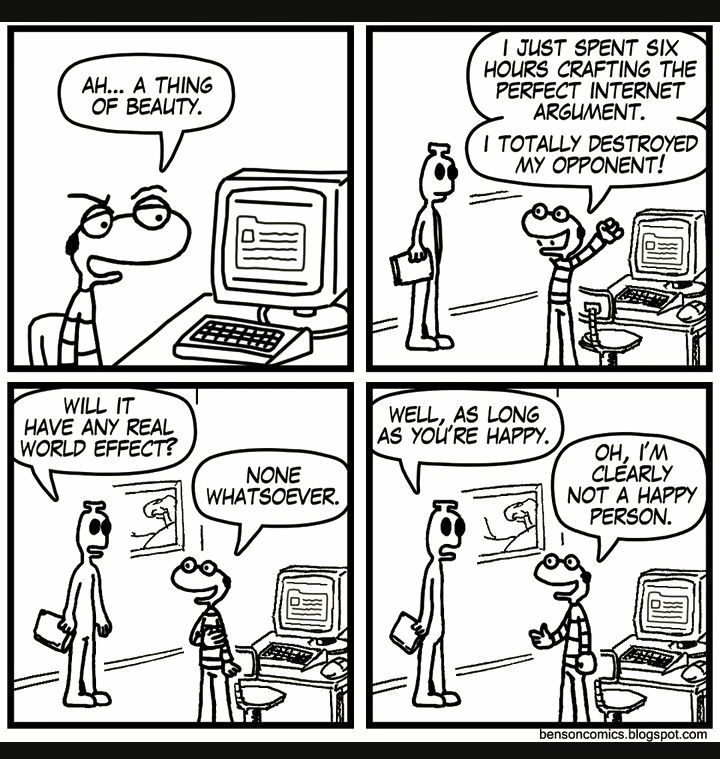I don't know about the "no real life effects". As a teenager, I was dangerously close to falling down a conspiracy theorist rabbit hole, back then with 9/11-"truthers". It was online arguments I witnessed, where their arguments got dismantled by people knowing what they are talking about, that got me out of there before I got in too deep.
Similarily, loneliness once got me adjacent to the proto-"manosphere" before it was a thing as it is today. But arguing with them about how they are wrong about womens' roles historically, claiming they were "privileged" in ways they objectively weren't turned me off of their bullshit really quickly.
I know arguing online has become more exhausting ever since, but I think there might be a bit of an overly dismissive reaction present with a lot of people on the internet. Developing your own ideas against opposition is still something worthwhile in many cases. And online, there's usually at least some kind of audience, that gets influenced by discussions - for better or worse.
That being said, I may be overthinking things. Because any discussion, where your goal is "totally destroying the opponent" is usually in the category of least worthwhile discussions to have.

